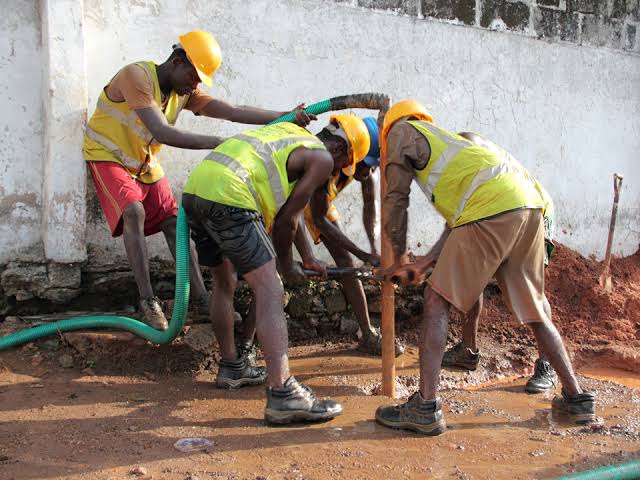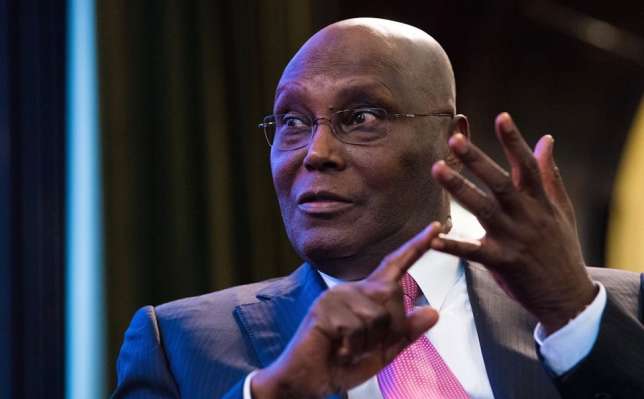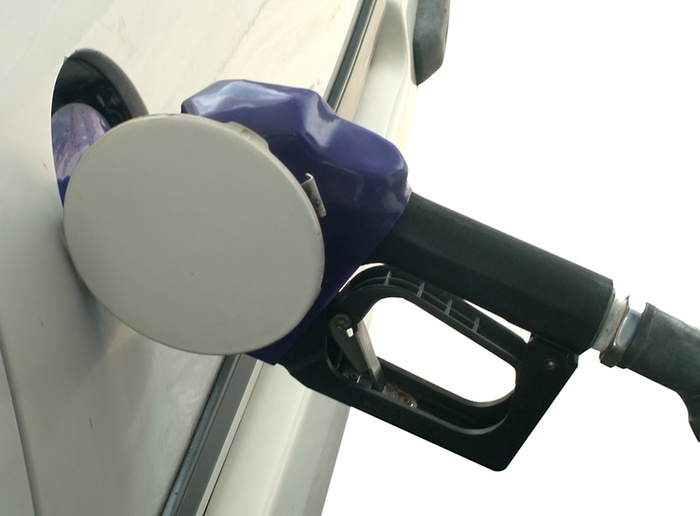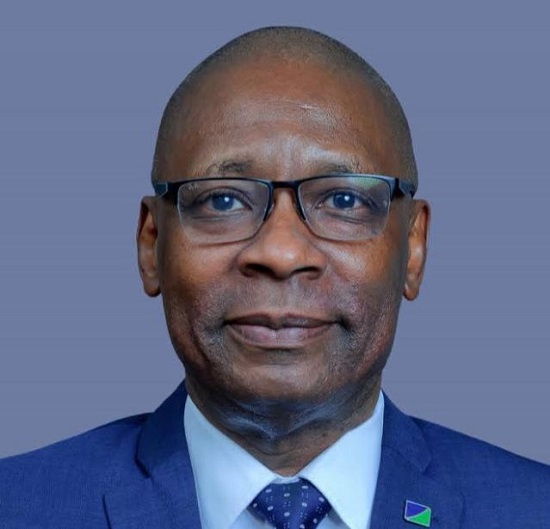The bill seeking to regulate water resources in the country has turned out to be quite controversial.
It dates back to the eighth national assembly when the proposed law was first sent to the parliament by the executive.
While the bill passed in the house of representatives, it failed at the senate. Godswill Akpabio, minority leader at the time, led opposition lawmakers to kick against the bill.
Bukola Saraki, former senate president, had suggested that the bill be stood down and brought back again for consideration after some adjustments may have been made but that never happened till the end of term of the eighth senate.
Advertisement
In July, the proposed law resurfaced in the lower legislative chamber and has since passed second reading.
While calling for a public hearing, some lawmakers from the middle belt region of the country alleged that the bill was smuggled back into the national assembly.
Wole Soyinka, Nobel laureate, who kicked against the bill, argued that it is designed to give “absolute control” of the country’s water resources to the federal government.
Advertisement
The bill is a consolidation of existing laws; Water Resources Act 2004, National Water Resources Institute Act, River Basin Development Authorities Act, and the Nigeria Hydrological Services Act.
Here are highlights of the bill;
ESTABLISHMENT OF WASH FUND
Section 1(1) of the bill ensures that the nation’s water resources are “protected, used, developed, conserved, managed and controlled” while taking into account “citizens’ right of access to safe water and basic sanitation; meeting the basic human needs of present and future generations”, among others.
Advertisement
Section 151 provides for the establishment of Water Supply, Sanitation and Hygiene (WASH) fund.
“There is hereby established the Water Supply, Sanitation and Hygiene Fund (in this Bill referred to as ‘the WASH Fund’) for the purpose of financing the development of water resources as well as for expanding access to Water Supply and Sanitation facilities and for the promotion of Hygiene practices across Nigeria,” it reads.
STATES MAY CONTROL WATER SOURCES BUT UNDER FG’S POLICIES
Section 2(2) provides that “states may make provisions for the management, use and control of water sources occurring solely within the boundaries of the state but shall be guided by the policy and principles of the federal government in relation to Integrated Water Resources management, and this bill.”
Advertisement
YOU DON’T NEED LICENCE TO USE WATER FOR DOMESTIC PURPOSES
Section 3(1) states that you do not need a licence to use water for domestic purposes.
Advertisement
“Notwithstanding the provisions set out in section 2 of this Bill, but subject to Regulations issued by the relevant State Agency identified pursuant to Section 79 hereunder, and in overriding Public Interest, a person may, without a licence; (a) take water from a water source to which the public has free access for the use of his household or for watering domestic livestock,” the article reads.
“(b) use water for the purposes of subsistence fishing or for navigation to the extent that such use is not inconsistent with this Bill or any other existing law;
Advertisement
“(c) where a statutory or customary right of occupancy to any land exists, take or use water without charge from the underground water source, or if abutting the bank of any watercourse, from that water course, for reasonable household use, watering livestock and for personal irrigation not for commercial purposes; or (d) store and use runoff water from a roof.”
ESTABLISHMENT OF WATER RESOURCES COUNCIL, COMMISSION
Advertisement
The bill provides for a body known as the National Council on Water Resources and Water Resources Regulatory Commission.
“There is established an advisory standing body to be known as the National Council on Water Resources (in this Bill referred to as ‘the Council’),” section 4(1) states.
“(2) The council shall meet at least once every year and at other times as directed by the chairperson (minister of water resources).
“(3) The Council shall establish committees and subcommittees as required to investigate and analyse issues tabled for discussion before the council and to formulate recommendations.”
Section 16(a) states that the “[Commission will] regulate, protect, conserve and control water resources identified in this Bill as water sources crossing state boundaries in accordance with section 2 as well as the first schedule of this act for equitable and sustainable social and economic development and to maintain environmental integrity.
“(b) regulate the allocation, supply and distribution of water resources for all uses, and to promote equitable, sustainable and efficient best practices and conduct;
“(c) ensure that licensees, authorised developers, as well as other users of water resources whether for consumptive or non-consumptive purposes and their infrastructure meet the technical, social and commercial requirements and obligations specified under this Bill in a manner which promotes fairness as well as the well-being of all citizens;
“(d) protect licensees and the public with regard to quality of service in the sector and the determination of and payment tariffs;
“(e) ensure that licensees achieve the highest possible level of accountability and responsiveness to environmental and community needs.”
FUNDING OF COMMISSION
According to section 43(2), “there shall be paid and credited to the fund established in subsection (1) of this section;
“(a) fees, charges and other income accruing to the Commission from licensees and other things done by it in terms of this Bill, excluding any fines or penalties recovered pursuant to this Bill;
“(b) 2% of the Nigeria Ecological Fund; (c) funds allocated to the Commission by the National Assembly, pursuant to a request by the Commission for additional funds required to meet its reasonable expenditures.”
COMMISSION’S DECISION BINDING
According to section 37, whatever the commission decides is binding and enforcement may be done by the federal high court “as if the decision is a judgment of such Court provided that the Commission has issued a certificate to the Complainant for leave to proceed to the Court for enforcement of the decision.”
Licensees that, “without reasonable cause”, do not comply with the directive as given, under section 37(3), “shall be liable to a penalty of up to N1,000,000 (one million naira) and a further penalty of not less than N50,000 for every day during which the non-compliance continues.”
POWERS OF THE MINISTER OF WATER RESOURCES
Section 11(1) states that the minister shall chair the management of the country’s water resources.
Under section 11(2), the minister “may delegate the power under subsection (1) of this section to any person or Institution as deemed appropriate”.
Section 12(1) also lists more functions of the minister.
It reads: “The minister may, in consultation with the Federal Executive Council, by notice in the gazette, establish a committee to coordinate implementation of any international agreement entered into by the Federal Republic of Nigeria and a foreign government or any other international body or organisation relating to; (a) investigating, managing, monitoring, and protecting water resources; (b) regional cooperation on water resources;
“(c) acquiring, constructing, altering, operating or maintaining waterworks connected to such agreement; or (d) the allocation, use and supply of water according to the principles of equitable and reasonable utilization and avoidance of significant trans-boundary harm.
“13(1) For the purpose of this Bill, the functions of the Minister shall be; (a) to formulate national policy and water resources management strategy to guide the integrated planning, management, development, use and conservation of the nation’s water resources and provide guidance for formulation of hydrological area resources strategies under section 94 of this bill.”
YOU CAN’T DRILL BOREHOLE FOR COMMERCIAL USE WITHOUT A LICENCE
Section 75 states that no corporate organisation or individual shall commence borehole drilling business in Nigeria unless such driller has been issued a water well driller’s licence by the commission.
As contained in section 77, “a drilling permit shall; (a) authorise the construction of one or multiple wells in specified locations in compliance with the conditions of approval specified for the purpose; and
“(b) be given at the catchment level by the CMO subject to licensing provisions under this PART V of this Bill and any regulations made pursuant hereto.”
On failure to comply with the provisions of the bill, section 78 holds that such a driller “commits an offence and is liable to a fine of N500,000 or to imprisonment for a term of 1 year”.
ESTABLISHMENT OF CATCHMENT OFFICE, WATER INSTITUTE
The bill provides for the establishment of a Catchment Management Office (CMO), in each hydrological area, the Nigeria Hydrological Services Agency and National Water Resources Institute.
Section 52(2) states that “the purpose of a Catchment Management Office shall be to implement in each Hydrological Basin over which it has responsibility, the regulations and Policies of the Commission in accordance with this bill.”
On the institute, this is covered in section 114(1), which notes that there shall be “established an institute to be known as the ‘National Water Resources Institute’ (in this Bill referred to as ‘the Institute’) which shall be a body corporate with perpetual succession and a common seal and may sue and be sued in its corporate name.”
“(2) The Institute shall be responsible for the promotion and development of training courses in water resources management and related fields and without prejudice to the generality of the fore-going shall; (a) advise the Minister on national water resources training needs and priorities;
“(b) perform engineering research functions related to such major water resources projects as may be required for flood control, river regulation, reclamation, drainage, irrigation, domestic and industrial water supply, sewage and sewage treatment.”
Section 94(1) makes provision for “the Nigeria Hydrological Services Agency (in this Bill referred to as ‘the Agency’),” while section 100(1) lists the functions of the agency.
“The Agency shall; (a) advise the Federal and States Governments on all aspects of hydrology and hydro-geology;
“(b) project, prepare and interpret Government policy in the field of hydrology; (c) work with local and international meteorological services Agencies and Institutions, to issue forecasts for floods and other water related issues.”
OFFENCES
Section 147 provides that “any person who, in any declaration required to be made under this bill, makes any statement which he knows to be false or does not have reasonable grounds to believe it to be true, commits an offence and is liable on conviction to a fine of 100,000 Naira or to imprisonment for a period not exceeding 6 months or to both.”
According to section 148(1), “No person shall; (a) use water otherwise than as permitted under this Bill;
“(b) fail or refuse to provide- (i) access to any books, accounts, documents or assets; and (ii) data or information, when required to do so under this Bill;
“(c) fail to comply with any condition attached to a license issued or deemed issued under this Bill;
“(d) fail to comply with a directive issued by the Commission; (e) unlawfully and- intentionally or negligently tamper or interfere with any water works; (f) fail to procure a licence or other approval required under this Bill upon the expiration of an existing right to use water recognised upon the commencement of this Bill.”
Section 148(2) states that “any person who contravenes any provision of subsection (1) of this section commits an offence and is liable, on-
“(a) first conviction, to a fine of N50,000 or imprisonment for a term not exceeding 5 years, or both; (b) second or subsequent conviction, to a fine of N100,000 or imprisonment for a period not, exceeding 10 years or both.”







